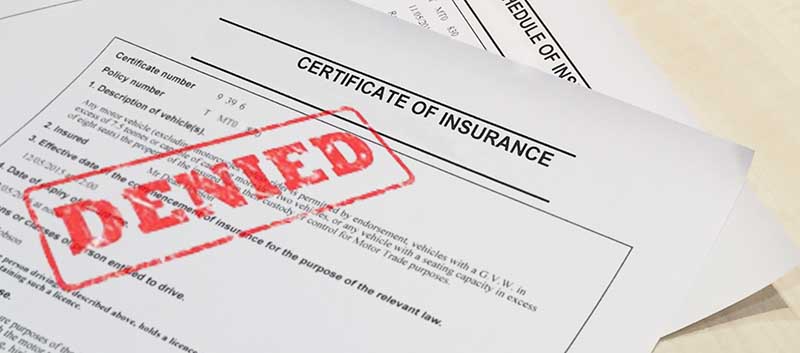Cross border hiring is severely affecting both private hire and public hire drivers across the country. London black cab drivers will tell you that they see Uber drivers from as far afield as Manchester and Sheffield operating at weekends in the capital.
Private hire operators in the west country, south coast and midlands complain about PCO licenced vehicles accepting jobs in their regions.
Donna Short of the National Private Hire Association states that it’s the number one issue, “affecting the majority of licence holders in the majority of licensing authorities.”
Many of her association’s members have been in touch to ask whether out of area drivers are insured when carrying passengers outside of the area their licence has been issued in? She subsequently contacted us to ask for clarification.
The below blog attempts to answer her questions and those of the many drivers who have been in touch on social media regarding the subject. Click on a header below to jump to a specific section:
- The Deregulation Act 2015
- Why do private hire and taxi drivers operate across borders?
- If a private hire or taxi vehicle is working wholly outside the district that granted the vehicle its licence, does this invalidate its insurance cover?
- How can the insurance industry help stop cross border hiring?
- How will cross border hiring affect private hire and taxi drivers insurance costs?
- Is a national Private Hire and Taxi licencing body needed?
- Uninsured drivers also affect insurance costs
The Deregulation Act 2015
Firstly it’s worth pointing out that the issue is attributed to The Deregulation Act that came into force on October 1st 2015. At the time the intention was to enable operators to work more efficiently by sub-contracting work to another operator in a near-by licencing area. This allows for another company’s driver to be used when they are closer to a further afield booking request.
However, it has effectively allowed taxi and private hire vehicles to operate across the whole of England and Wales. Local council enforcement officers often have restricted powers to carry out spot checks on vehicles licensed elsewhere.
Though Steve Wright, Chairman of the LPHCA is keen to point out that in terms of drivers licenced by TfL the 2015 Deregulation Act is a “red herring.” London based operators were already unrestricted by their regulator. In his opinion, drivers operating cross border has only become a widespread issue for the industry due to Uber and the way the functionaliy of the American firm’s app allows for the loophole to be exploited.
back to top
Why do private hire and taxi drivers operate across borders?
The main reason a driver will seek to operate across borders is to obtain more fares in busier areas and possibly at a higher rate of pay. For example Uber regularly introduces surge charging in London during times of peak demand when major incidents/strikes occur.
We sympathise with drivers who are attempting to increase their income but when one area becomes overloaded it can undermine the carefully considered quotas of the regional regulator/council. This has a damaging effect on the local driver community and greatly increases vehicle numbers to the extent that it can cause severe road congestion.
London is the largest licencing area but TfL have no ability to restrict the number of licences issued. This has served to greatly suppress fares and ultimately the income of all drivers in London. The huge surge in the number of drivers being licenced in London has also had a knock on affect to other areas in the country. There are many reports of TfL licenced drivers who are now operating much further afield in provincial areas.
Drivers operating across licencing borders may be attempting to avoid certain rules imposed by local councils and reduce their insurance costs – we’ll discuss these issues in more detail later.
back to top
If a private hire or taxi vehicle is working wholly outside the district that granted the vehicle its licence, does this invalidate its insurance cover?
The main point here is that insurers are not regulators, nor are they legal enforcers. At Plan we definitely we agree that cross border hiring is an issue that needs to be tackled. However as an industry we are not in a position to enforce regulations and nor do we have the ability to set legal conditions or precedents.
Following the Deregulation Act we cannot endorse a policy to say a driver cannot take a pre-booked job from an operator that is not in his or her area. So the driver’s insurance would not be void; providing it went through the appropriate channels and/or authorities do not deem it as touting then his/her insurance would be enforced. If you’re insured for Public Hire/Hackney Carriage; your policy will allow you to ply for hire and take pre-booked work regardless of the area in which the fare was booked.
Many drivers benefit from this flexibility of cover when they collect a passenger in one council’s area of jurisdiction and transport them to an address in another. I think the vast majority of drivers would regard this as a good thing and would not seek to restrict the market to prevent this happening. It wouldn’t benefit drivers or customers. However what the industry wants to prevent is drivers who are operating almost entirely outside of the area they obtained their licence.
Unfortunately as it stands even if a private hire or public hire taxi vehicle is being used for work wholly outside the district that granted the vehicle its licence it would not be contravening its insurance policy. However if the driver did something which the authorities felt contradicted the rules and was deemed to be touting then the policy could be voided.
back to top

How can the insurance industry help stop cross border hiring?
One area that insurance can influence is cost. With insurance there are many aspects (rating factors) which make up the cost of your insurance. i.e. age, vehicle, home postcode, operating post code, licensing authority etc. A number of drivers operating solely or almost entirely outside of their licenced area have worked out that certain areas of the country pay less for insurance and fraudulently claim that they are based in these areas.
We try to combat this and prevent it happening by asking: where they live, where their licence is issued from, who they work for and where they get their bookings. Then we will rate the policy based on all the facts. However we know a lot of our competitors do not obtain the full picture.
back to top
How will cross border hiring affect private hire and taxi drivers insurance costs?
The issue here is that you have areas that have performed well in the past in terms of low claim pay outs that are now being ‘muddied’ by drivers from areas that have not performed as well. Therefore if this trend continues; then these drivers operating across borders will end up increasing insurance prices in the “better” areas. This will lead to insurers rating on a more standardised bases; which will be bad news from some parts of the country.
For example people working and living in or around the Lake district pay a lot less for people who live or work in Blackpool, Blackburn and Manchester etc. However if drivers from these areas continue to obtain licenses in areas like Copeland but really they work in Manchester then Copeland will end up having the same claim statistics as Manchester. Then as explained above insurers will have to treat Copeland in the same way that they treat Manchester.
What is needed is for all insurers and brokers to try and eliminate cross border hiring by careful underwriting. This involves the type of pre-inception checks that we carry out at Plan. We ask numerous questions to see if the information they are presenting makes sense. It is a relatively complicated issue for many to understand the finer details of but we do our best to educate the market.
Hopefully drivers will vote with their feet and support insurance suppliers that turn down enquiries from cross border operators. Yet in these difficult times many drivers are purely price driven and will do all they can to reduce their cost; which is totally understandable in this current climate.
back to top
Is a national Private Hire and Taxi licencing body needed?
With local council enforcement officers often unable to assert their authority over drivers and vehicles licensed elsewhere perhaps a national regulatory body for the taxi and private hire industries is required?
We already have the Driver and Vehicle Safety Authority (D.V.S.A. previously known as V.O.S.A.) which licences and carries out vehicle checks; albeit on larger vehicles i.e. coaches, buses and minibuses etc. Could the DVSA take responsibility for taxi and private hire regulation across the UK?
If so they could enforce standardised rules nationwide. There would still need to be some regional subtleties such as in London where the Black Cab trade is subject to much tighter regulation to maintain required standards. However across the board drivers and service providers would be better placed to know where they stand on a number of regulatory issues. For example there would be much less confusion over rules relating to: vehicle criteria, whether non PH licenced drivers allowed to drive licenced vehicles such as spouses, regulatory of MOTs, licence costs, CRB/DBS checks and insurance requirements.
In addition to CRB and DBS checks, which are particularly important for safeguarding passengers, a national body would be able to compile a complete database of drivers. The intention being to prevent drivers who have previously been deemed not to be fit and proper persons from requesting a licence in an alternative licencing area. Private Hire & Taxi Monthly reported on this topic in January when an issue came to light in Southend.
Two drivers, Nasser Hussain and Nisar Abbas had received custodial sentences for perverting the course of justice by operating a ring in which drivers shared driving convictions to avoid being banned. They subsequently had their private hire licences revoked by the local council. However they were found to be operating in the area for Uber under a licence issued by TfL.
Other regional areas affected by cross border issues include Bristol where drivers are obtaining private hire vehicle licences to side step their obligation to complete the council’s driving and topography tests.
The pros and cons of creating a national regulatory body for the taxi and private hire industry is a substantial discussion in itself. I intend to write a separate blog on the subject in the near future.
back to top
Uninsured drivers also affect insurance costs
From my experience and knowledge of taxi and private hire policies; I also think a lot more needs to be done regarding drivers who do not have appropriate insurance; and the regulators / local authorities need to prioritising tackling this issue. I believe there are thousands of drivers ‘acting’ as private hire and/or public hire drivers that are not insured for this purpose and this is having a massive inflationary effect on the cost of insurance for the industry.
These drivers might not have a valid policy; but the insurance industry is still legally responsible to pick up the cost of damages to third parties. i.e. compensation to injured passengers and other motorists etc. Ultimately these costs are passed back onto honest drivers via their renewal premiums.
So in summary, regrettably I can’t provide better news about the insurance industry’s ability to tackle drivers operating across borders. Providing the law does not prosecute them for touting or a similar offence then the drivers’ insurance will be valid – and there is not a lot the insurance industry can do on this.
back to top


